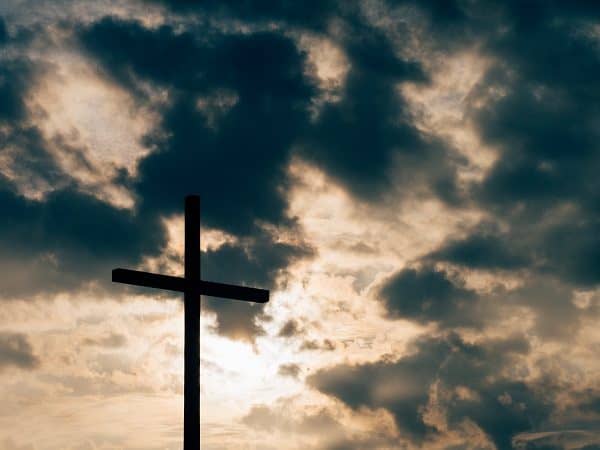⏱️ Estimated Reading Time: 8 min read
Psalm 69:30, “I will praise the name of God with a song;
I will magnify him with thanksgiving”
Thanksgiving is a practice of politeness, etiquette, and good decorum. Right? It is what we (are told to) express when Aunt Lucille buys you a sweater when you want the Super Hero action figures. Or something like that. It is a Christian command, but one that is more happenstance than a daily discipline. Right?
Well, what does Scripture say? Could it be that Thanksgiving is something far more essential than we typically think? However you consider it, I am increasingly convinced the discipline of thanksgiving is a central feature of what it means to be a Christian. With it, the Church of God will grow in grace and love and hope, but without it, Christ’s church becomes bitter, fragile, and peevish.
Could it be that one of the greatest needs we have today is the cultivation of Thanksgiving as a spiritual grace and habit of holiness? Could it be that we have too casually treated Thanksgiving? Maybe it’s just me, but I think we could use a refresher on how important Scripture makes Thanksgiving.
Thanksgiving in the Psalms
The Psalter is filled with all kinds of emotion, but one of the chief elements is Thanksgiving. For instance, Psalm 100 is a called “a Psalm for Giving Thanks.” Psalms 107 and 118 both begin commanding thanksgiving (“Oh give thanks to the Lord, for he is good, for his steadfast love endures forever”). And Psalm 111 starts, “Praise the LORD! I will give thanks to the Lord with my whole heart” (v. 1). Indeed, Thanksgiving is the natural and perpetual baseline for sinners redeemed by God—notice the commands to praise come with reasons based on God’s works of redemption.
Because God glorifies himself most clearly in redemption, it makes sense that the Bible would make Thanksgiving a chief way we glorify God when we publicly acknowledge God’s work of salvation in our lives. Indeed, this occurs most clearly in Psalm 50:14–15, 23 and Psalm 69:30:
“Offer to God a sacrifice of thanksgiving,
and perform your vows to the Most High,
and call upon me in the day of trouble;
I will deliver you, and you shall glorify me.”. . .
The one who offers thanksgiving as his sacrifice glorifies me;
to one who orders his way rightly
I will show the salvation of God!” (50:14–15, 23)
“I will praise the name of God with a song;
I will magnify him with thanksgiving.
This will please the Lord more than an ox
or a bull with horns and hoofs.” (69:30–31)
In these two Psalms, we see that giving thanks pleases the Lord more than sacrifice. Indeed, in the fullness of time, when we read these Psalms in light of Christ’s final sacrifice, we give thanks for God’s perfect sacrifice and super-abundant grace. For new covenant believers, Thanksgiving which extols Christ is the way God’s glory is magnified today. Personally, we please God we acknowledge our desperate need for Christ, instead of trusting in our own works. And publicly, Christ receives the honor he deserves when we give thanks. For that reason, the Psalms teach us to be a people of thanksgiving—a theme that the Apostle Paul continues in the New Testament.
Thanksgiving in Paul
In all of Paul’s letters (minus Galatians), thanksgiving can be found in his opening salutation. In these introductions Paul is doing more than following the literary conventions of his day; he is manifesting his commitment to glorifying God through thanksgiving. In other words, as he praises God for the grace given to the Corinthians (1 Corinthians 1:4–9), he tells the story of the work of God in Corinth, and he also reminds himself that this messy church is the Lord’s. Thus, he will treat them as his own family and in a way that honors God.
Likewise, when Paul give thanks for the Philippi’s partnership in the gospel (1:3–11) or the faith, hope, and love manifest in Thessalonica (1 Thessalonians 1:2ff.), it leads him to pray for God to glorify himself more fully in these churches. Thus, Thanksgiving for Paul leads him to pray and pray more. In fact, in Philippians 4:6 Paul says we are to submit our petitions with thanksgiving. Thanksgiving is not an incidental matter for Paul. Rather, it stands central in his thought and practice, and so it should be in ours.
The reasons for this are manifold, but let me mention two. In addition to bringing direct glory to God (as we saw in the Psalms) and prompting prayer, which glorifies God (John 14:13), thanksgiving (1) severs the roots of idolatry and (2) results in greater evangelism and encouragement which in turn prompt more praise.
First, in Romans 1:21–23 Paul says that all people know God but don’t honor him as God or give thanks to him. Romans 1 is the classic text on idolatry, where Paul reports how the Gentiles exchanged the glory of God for the glory of other things. He writes:
“For although they knew God, they did not honor him as God or give thanks to him, but they became futile in their thinking, and their foolish hearts were darkened. 22 Claiming to be wise, they became fools, 23 and exchanged the glory of the immortal God for images resembling mortal man and birds and animals and creeping things. 24 Therefore God gave them up in the lusts of their hearts to impurity, to the dishonoring of their bodies among themselves, 25 because they exchanged the truth about God for a lie and worshiped and served the creature rather than the Creator, who is blessed forever! Amen.”
In this context, we learn that a human heart which refuses to give thanks to God for his creation will turn that creation into an idol to worship. Sadly, this is true for believers and unbelievers. While the believer may have made a definitive break with his old life, there is always the temptation to craft another idol.
What will protect us from such sin? From Romans 1, only an ongoing, increasing love affair with God will empower us to turn from sin. To say it differently, when we commune with God, our heart fills with thanksgiving—thus, empowering us to walk with him. This is why we read Scripture, go to church, and commune with the body of Christ: to see who God is, what he has done, and what he will do. As we see Christ’s redeeming work, it leads to Thanksgiving and not just data collection. In fact, data collection devoid of thanksgiving is deadly. Therefore, thanksgiving is not something optional; it is not something we may fall in and out of; it is the very life-center of the Christian. In good times and bad, we are to offer a sacrifice of praise (Hebrews 13:15) and live lives full of gratitude. Indeed, this is central to what it means to be a true believer. And thus, it is a discipline we must pursue.
The other way in which thanksgiving glorifies God is that invites others to give thanks. Listen to what Paul says in 2 Corinthians 4:15: “as grace extends to more and more people it may increase thanksgiving, to the glory of God.”
In context, Paul’s words have more to do with evangelism—as more enemies of God come to faith, the chorus of praise increases—but it also relates to the amplification of grace in the church. As believers, we celebrate God’s grace in our lives and publicly and repeatedly acknowledge God’s goodness, faithfulness, and provision, the faith of others is strengthened. Even more, like nuclear fusion, thanksgiving causes a chain reaction of thanksgiving which leavens the whole church. Indeed, while grace can be seen in many ways in a church, thankfulness should be one of the leading attributes of a grace-filled church.
Giving Thanks and Spurring On Thanksgiving
For all these reasons, I contend that thanksgiving is more than a superfluous and spontaneous emotion. It is a discipline followers of Christ must cultivate, a habit of holiness churches should likewise plan for and pursue. In our preaching, singing, reading of Scripture, and corporate worship the tenor of our voices should resound with thanksgiving. In our petitions, confessions, and commands, we must not forget what God has done, and what he has promised to do.
Indeed, when living by the truth claims of the gospel, it is impossible not to be thankful. And as Scripture indicates, thanksgiving should not be left to chance. Rather it should be the regular pattern of our lives. In my own life, this is a personal need and one I pray God might grant so that my thanksgiving would increase, and with it, the manifestation of his grace and glory.
This article first appeared at David’s blog and is posted here with his permission.




